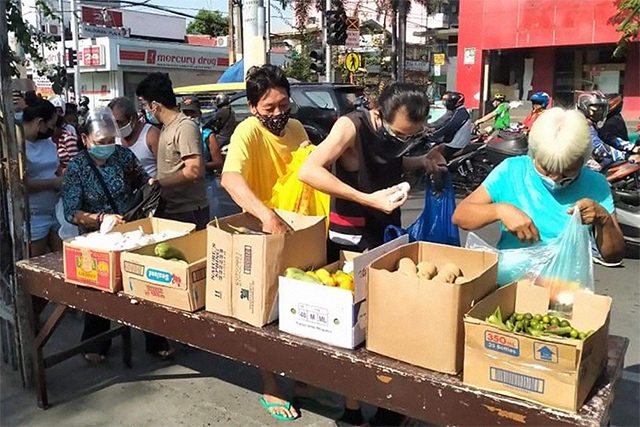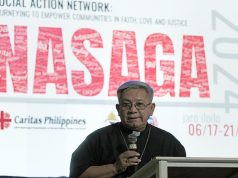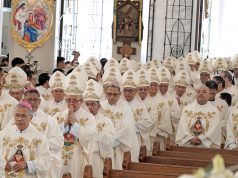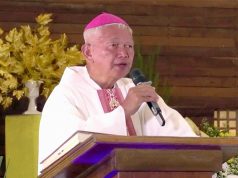
Manila’s Catholic bishop has encouraged the parishes to set up their own “community pantries” as another initiative to reach out to those in need amid the COVID-19 pandemic.
Bishop Broderick Pabillo, Manila Archdiocese administrator, said the initiative is a “very good way of spreading generosity and ‘bayanihan’ among us”.
“I encourage the priests, parishes and the BECs (Basic Ecclesial Communities) to join this initiative,” Pabillo said over Radio Veritas on Monday.
Inspired by the first community pantry in Quezon City’s Maginwaha Street, the street pantries made their way to other communities not just in Metro Manila but also in other provinces.
Community pantries allow people to donate for those in need who can choose what items such as food and other essential goods that they want to take home.
“We commend the initiative of the community pantry because it shows cooperation,” Pabillo said.
READ: Bayanihan in action: Filipinos replicate Maginhawa community pantry to help pandemic-hit residents
In Kalookan diocese, a pantry of basic goods has been opened at the San Roque Cathedral on Sunday as Bishop Pablo Virgilio David asked other parishes to do the same.
Caritas Philippines, the Church’s social action arm, said the spread of street pantries showed that kindness and compassion never stop even “at a time when poverty is most visible”.
“[It] is one of the most Christian responses at a time when self-preservation, and addiction to power are very eminent,” said Bishop Jose Colin Bagaforo, Caritas’ national director.
“With the pandemic, it is expected that the number has increased exponentially. Thus the need for a concerted localized effort to respond to the problem,” he said.
In April 2020, the church agency also set up a similar project known as “Caritas Kindness Stations” in different dioceses.
According to Fr. Tony Labiao, Caritas’ executive secretary, the initiative aimed to advocate a community-based replicable localized response that empowers community members to “take what you need, spare some for others, and give what you can”.
Until today, the Caritas Kindness Station continues to exist in more than 15 provinces across the country, which is also being tied up with the diocesan programs on food security.
“We are able to connect the Caritas Kindness Stations with our parish social action center-based vegetable gardens, which in turn promoted household-based food security initiatives,” Labiao said.
Bagaforo said initiatives like the community pantries and kindness stations are manifestations of “what we can do to augment the resources of the government to help the most in need families affected by the pandemic”.
“As a people, we are powerful. Hence, we continue to call on all individuals, families and communities to establish these kindness stations or whatever you want to call it,” he added.
“The important thing is, as a Christian nation, we collectively look and reach out for our neighbors. At Caritas Philippines, we call it ‘Alay Kapwa’,” the prelate also said.









